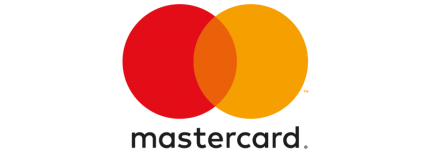“From where we are in Africa,” said Emma Ingaiza who manages a clinic in the legendary Mathare slums of Nairobi, “we would want the world out there to understand that we are equally important. That our lives also matter. We’re just on the front line as much as everyone else is.”
Co-host Claudia Romo Edelman, who worked on the challenge of supply of treatment and vaccine for HIV/AIDS, Tuberculosis and Malaria, said the world saw this crisis coming. But the solution created by the World Health Organization and other groups, called COVAX, has been slow to raise the money from high income countries and then buy the vaccine supply it is committed to delivering to low income countries.
Roz Scourse of Doctors Without Borders says COVAX has failed and that the solution is plan offered by South Africa, India and many countries in the global south to waive Intellectual Property rights on the new vaccines so poor and middle countries can make their own. Others, however, worry this might undermine manufacturing quality while doing nothing to solve the problem that high income countries have bought most of the current supply.
Featured guests
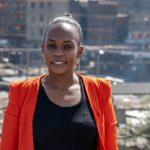
Emma has more than 6 years’ experience in health programs design, management and implementation with a focus on increased access to affordable and quality primary healthcare among underserved communities. She has experience in designing and implementing programs addressing disease management, maternal and child health, nutrition, HIV care, adolescent sexual and reproductive health (ASRH), and is highly skilled at building cross-cultural relationships among communities in urban informal settlements.
Emma is a clinical officer with an ongoing distance learning Bachelor of Science (BSc) degree in Health Systems Management. She is currently overseeing SHINING HOPEFOR COMMUNITIES (SHOFCO) primary healthcare services in a level 2 hospital in Mathare , Nairobi. She has had an opportunity to represent Kenya internationally as a One Young World Fellow and regionally in the Young African Leadership initiative East Africa (Yalieastafrica) Fellowship under Public management track. Through volunteer networks the power to arrest the spread of disease is moving from healthcare providers to communities.
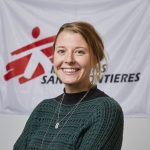
Roz joined the MSF Access Campaign in 2016 and works on issues related to ensuring equitable access to medical products globally, including vaccines, treatments and diagnostics. Roz is based in the UK and focuses on monitoring UK policies and laws related to access, as well as following specific products being developed in the UK and advocating for strategies and policies which aim to maximise access for people living in countries where MSF works, and beyond. This includes monitoring issues related to intellectual property (IP), affordability, supply, allocation, transparency, and sharing of IP, data and knowledge.
Previous to MSF, Roz worked with civil society organisations (CSOs), researchers and campaigners on health inequities with a particular focus on access to health services and medical tools. Roz has previously worked with a number of UK-based national and international CSOs, the All-Party Parliamentary Group (APPG) on HIV/AIDS, within the NHS on HIV research programmes, as well as with marginalised communities impacted by a lack of access to health services.
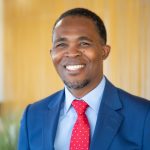
Thabani Maphosa is Gavi’s Managing Director of Country Programmes, overseeing Gavi’s operations in 73 countries. The Country Programmes Department’s raison d’être is to harness the power of the Vaccine Alliance for countries to save the maximum number of lives through immunisation. This is achieved through maximising financial investments (donor and domestic), bringing the best partners to the table and driving innovative solutions. The Country Programmes Department manages Gavi’s relationships with governments and provides grant management oversight for all in-country resources.
Prior to joining Gavi, Thabani held several leadership roles in World Vision International for over 16 years. Thabani is a seasoned humanitarian who has led disaster preparedness and response efforts globally. He is also recognised for introducing the use of technology in the last mile and not least for scaling up cash transfers in stable and fragile contexts.
With a Master of Philosophy degree in Science, Thabani has worked in academia as a lecturer in physiology and microbiology.
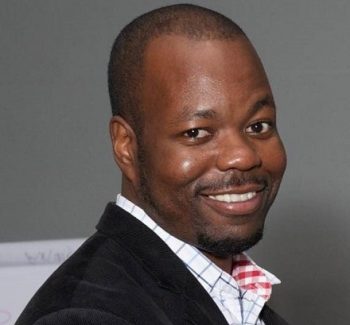
Eduardo Samo Gudo is the Scientific Director at National Institute of Health, Ministry of Health, Mozambique, and a medical researcher in the field of Immunology and Virology.
Samo Gudo received a degree in Medicine (MD) at Eduardo Mondlane University in Mozambique in 2003, and PhD in Immuno-retrovirology at FIOCRUZ in Brazil in 2012.
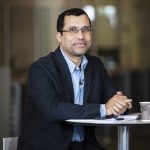
Dr Siddhartha Datta, MD, MPH, is the Regional Advisor for Vaccine-preventable diseases and Immunization programme in the WHO European Region, leading a team that supports WHO Member States with routine immunization coverage as well as currently the preparation for and rollout of COVID-19 vaccines and vaccination. Dr Datta has served WHO in Papua New Guinea and Lao PDR as a Technical Lead, and earlier worked as a State Routine Immunization Officer focused on polio and routine immunization in Uttar Pradesh, India.
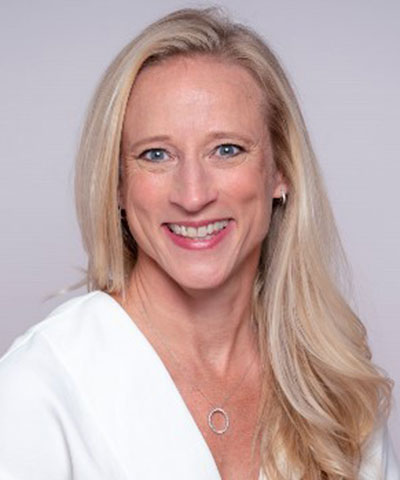
Kristina Kloberdanz Mastercard’s Chief Sustainability Officer. She is responsible for leading Mastercard’s approach to sustainability as defined by three key pillars: being good stewards of the environment, making positive social impact, and ensuring high standards of corporate governance. Kristina drives efforts to integrate and embed sustainability initiatives across business units and throughout the company as an accelerator of strategic growth. She joined Mastercard in May 2017 as Vice President of Corporate Sustainability, leading the development of the company’s sustainability report. Prior to that, she worked for IBM leading their global corporate responsibility/sustainability strategy, integration and brand reputation.
To learn more about the 2021 Mastercard Index of Women Entrepreneurs, click here.
Transcript
Emma Ingaiza (0:03): From where we are in Africa, we would want the world out there to understand that we are equally important, that our lives also matter. We’re just on the front line as much as everyone else is.
Thabani Maphosa (0:17): We are all competing for a limited supply. Vaccine nationalism, we anticipated part of that. But we didn’t anticipate that it will go to the extent as we see it.
Eduardo Samo Gudo (0:30): It’s useless that you have a coverage of 100% in one rich country. And then in the following day, you have importation of new variants. So all you effort you have done is become useless.
Roz Scourse (0:45): We saw this with HIV, people living in richer countries got access to HIV medication 10 years before people living in Africa with HIV got access, and that lag led to 12 million extra deaths that were preventable, because there was treatment that existed that could have prevented these deaths. The fact that we haven’t learned those lessons, and we’re seeing this playing out again, is a global failure.
Claudia Romo Edelman(1:15): Welcome to the Global GoalsCast.
Edie Lush(1:17): The podcast that explores how we can change the world. In this episode, the vaccine rollout is a moral catastrophe.
Claudia Romo Edelman (1:24): Are we vaccinating the wrong people in the wrong places? Are we potentially making this pandemic even worse?
Edie Lush (1:31):Vaccinating all the adults in the US or the UK before we have even vaccinated healthcare workers in Africa is bad health policy and wildly unfair.
Claudia Romo Edelman (1:43): Health officials say that no one is safe until everyone is safe, for the high income world isn’t acting like they really believe it.
Edie Lush (1:52): Not at all. In fact, the opposite. Many political leaders in the developed world have made it a test of their competence, that they will get all of their own people vaccinated as quickly as possible.
Claudia Romo Edelman (2:05): And I certainly understand that desire to protect your own people, of course, but it is turning into vaccine nationalism, and that can really have dangerous results.
Edie Lush (2:15): We will look at what’s going wrong with the vaccine rollout, and what it will take to set it right. But first, this message.
Michelle Cooperider(2:25): This episode of Global GoalsCast is brought to you by MasterCard.
Kristina Kloberdanz (2:30): We believe in starting with the women and programs within our organization. They are advocates to tell our story and demonstrate our ongoing commitment to positive change.
Dr Siddhartha Datta (2:44): MasterCard is dedicated to building an inclusive world in which the digital economy works for everyone, everywhere. Thanks also to CBS News Digital and Universal Production Music.
Edie Lush (2:59): Welcome back.
Claudia Romo Edelman (3:00): I’m Claudia Romo Edelman.
Edie Lush (3:02): And I’m Edie lush. Claudia, can you believe we have been living with COVID-19 for more than a year now?
Claudia Romo Edelman (3:10): Edie we have lost so much.
Edie Lush (3:12): I know, and it must be really painful to think about your mom.
Claudia Romo Edelman (3:16): I miss her everyday. Every day. And I also know that I am just one of the millions of people and families who have lost their loved ones around the world.
Edie Lush (3:27): We have all lost so much.
Claudia Romo Edelman (3:33): We as a world we have learned so much. Look at what we were able to do, the vaccines against COVID-19, the World Health Organization, Edie, declared the global pandemic on March 11 2020, merely a year ago. But by December, several new vaccines were created and tested. And that’s amazing. That’s unprecedented in the pace that we have done that. But our scientists did better at creating the vaccines than I think our leaders are doing in distributing them.
Edie Lush (4:03): That’s right, Claudia. It’s only been three months since the first vaccinations. But already, we can see the unfair pattern. A handful of rich countries are well on the way to protecting their entire population, while most of the poor world has yet to receive a single dose.
Claudia Romo Edelman (4:21): We want to really understand what is happening. So for this episode, we spoke to medical advocates in the rich world, doctors at the heart of the global health system and to frontline medical workers in Africa.
Edie Lush (4:37): Claudia, do you remember Emma Ingaiza? We spoke to her last April about her work trying to protect the poorest communities in Kenya from the pandemic. So we went back to find out how things have gone.
So Emma, where are you today?
Emma Ingaiza(4:55): I’m in Nairobi capital city of Kenya.
Edie Lush (4:58): And how is it there?
Emma Ingaiza(5:00): Everyone is adapting to probably just living with COVID. Few months into the pandemic, the reality struck that this is really huge. People lost jobs. So that brings me to the scary part. As a frontline health care worker, at first, I was very curious, I was willing to help. I felt like I am in control, I need to take charge, I need to take center stage to save lives. But again, with time, health care workers started dying. We went out of stock for commodities, companies started shutting down. and even scaling down even in healthcare facilities. Personally, I got COVID-19.
Edie Lush (5:50): Wow, when was that?
Emma Ingaiza (5:51): Around November.
Edie Lush (5:53): And what happened?
Emma Ingaiza (5:55): I had contacts with, with someone who was having COVID. And I could tell you for real during that time, the whole stigma issue and the uncertainty that comes, that came with probably not getting proper health care in our health facility setup was so rampant that I personally chose to do home isolation.
Edie Lush (6:20): Emma told us that when she got COVID, the public hospitals were too crowded, and private hospitals were too expensive. So, she isolated at home.
Emma Ingaiza (6:28): And that’s what I got, actually not only to be at the forefront, but also to be in a patient’s shoe and just get to experience how it felt.
Edie Lush (6:37): And how sick did you get? How bad was your experience?
Emma Ingaiza (6:40): It really was bad. It’s not the kind of flu I had gotten before, it was a more severe flu. I would feel extremely tired, I would not wake up if not woken up from the bed, I would have a lot of breathlessness even just by moving in my room or basking outside the house because I would send my family away every time I wanted to get out of my room. I had a lot of hallucinations. The general malaise that comes with it is, sets you into a very desperate mode, the thought of dying is so much on your mind. And this is not psychological. It was real life.
Edie Lush (7:27): You said you took one or two months off work, how long until you actually felt better?
Emma Ingaiza (7:34): I think after one and a half months, only towards the end of the two months is when I regained, and that was my worry. I would call one of my colleagues, but not working in SHOFCO was also sick, who had recuparated. And my worry was would we like ever stop feeling the way I am feeling? Being in that stage you are just like any other patient, you want to be visited. So the isolation makes things worse.
Claudia Romo Edelman(8:10): Emma, like millions of health workers all around the world have given their all going above and beyond. I was witnessing that with the nurses around my mother that were trying and risking and actually getting exposed to COVID. And then they got COVID. And they had the health issue and economical issue because like Emma, they cannot work for more than two months. This is really difficult and a harsh period for health workers.
Edie Lush (8:38): I was stunned to hear it. And honestly, I feel a little guilty too. there is an impression in the rich world, in the UK, that the pandemic hasn’t been so bad in Africa.
Claudia Romo Edelman (8:51): Absolutely. That is just wrong, isn’t it? Unfortunately, this is not the first time that that happens to Africa.
Edie Lush (8:59): Do you have a son? Do I remember that? Can I hear your son in the background?
Emma Ingaiza (9:03): Yeah.
Edie Lush(9:04): And I’m just wondering, how is that to not be able to see him? I can’t imagine not being able to see my kids.
Emma Ingaiza (9:11): He did not understand that. So we would have a lot of video calls when he’s in the house. And he will not understand that.
Edie Lush (9:19): I bet. How old is he?
Emma Ingaiza (9:20): Six years.
Edie Lush (9:22): And what’s happened to his schooling, has he been able to go back to school?
Emma Ingaiza (9:27): The better part of 2020 in Kenya, schools were closed down. And we were supposed to be on online education platforms. So since I was going to work every day, especially at the time when we were doing community health strategy, going to the communities and sensitizing the community, I would work around the clock and I was not able to catch up with the online education for him. And I remember I had to call a teacher to come and teach him at home and it’s not one of the best experiences. He changed schools, because now he’d missed a whole year because he was not able to attend the online schooling.
Edie Lush (10:08): Emma realizes that her experience is common to women all across Kenya.
Emma Ingaiza(10:13): In Kenya, it is the women who take care of their children. It’s the women who make sure that there’s some order in the house about how things are done. And therefore, when women are affected, then the whole family setup is also affected.
Claudia Romo Edelman (10:30): Women in Kenya, they sound like women all around the world.
Edie Lush(10:36): So it’s been rough for Emma, and for Kenya. Our editor, Michael Oreskes, joined me to ask Emma about vaccines.
Emma Ingaiza(10:44): There has been no clear communication on when vaccines will come. However, once they come, the people will be first prioritized will be the healthcare workers.
Michael Oreskes(10:53): You must see in the news that in some parts of the world like in the United Kingdom and the United States, large numbers of people are already being vaccinated. And yet, your vaccine has not arrived yet.
Emma Ingaiza(11:05): Of course, it’s scares us as healthcare workers, and especially in Nairobi, where the COVID-19 virus prevalence has been very high. We are really hoping that this could come much sooner.
Michael Oreskes(11:19): Did you feel that the world is paying enough attention to you in Kenya and to other countries that don’t yet have the vaccine?
Emma Ingaiza (11:29): Currently? No. Because, in fact, having the vaccines will be more sustainable than what we’re trying to do right now. For instance, investing in more equipment, other prevention measures and treatment measures like isolation.
Michael Oreskes (11:47): Do you think there’s a message that you in Africa would like to send to those of us in the rich world where we’re plunging ahead giving out vaccines, opening up big vaccine sites, and you’re still waiting for your first dose?
Emma Ingaiza(12:00): From where we are in Africa, we would want the world out there to understand that we are equally important, that our lives also matter. We are just on the front line as much as everyone else is, and it would be very relevant and important for equity to apply. I do not think that the other countries are more important than Africa.
Claudia Romo Edelman(12:28): The situation in Africa is quite frightening. And new wave is sweeping through some countries much worse than earlier waves. One of those countries is Mozambique. We caught up with one of the country’s top infectious disease doctors Eduardo Samo Gudo, who is the co chair of the National Task Force responding to COVID-19.
Eduardo Samo Gudo(12:50): The epicenter is the capital of the country, is Maputo City, that accounts for roughly 80% of cases, admission and death.
Edie Lush (13:01): The pandemic has taken a dreadful toll on health workers.
Eduardo Samo Gudo(13:05): I know very well, most of them, because they were either my colleagues during the medical school or they were my students, or they were my teachers. I think the exhaustion of the health professional, that is definitely one of the aspects that concern us most.
Edie Lush(13:27): Eduardo is waiting for the arrival of vaccine any day.
Eduardo Samo Gudo (13:31): I am optimistic. I think the emergence of new variants is increasing the awareness for the globe, that no country is safe until all countries are safe. It’s useless that you have a coverage of 100% in one rich country, and then in the following day, you have importation of new variants from the other countries that you have 2% of coverage. So all you effort you have done is become useless because you have a new variant that is more transmissible, that reduced the efficience, gets dominant. And then you have to readjust the vaccine, and then revaccinate people over again, so that is more work, more expensive than ensuring that all countries have access.
Claudia Romo Edelman(14:28): I’m sorry, but it is not like we didn’t see this coming right. The world saw it coming, the writing was on the wall. Last April, the United Nations formed a partnership to raise money from high income countries to send vaccines, which hadn’t even been invented at that time. And when Emma and Eduardo talk about the vaccine, they are expecting it to come from COVAX.
Edie Lush(14:51): In theory, it is a great idea. And very much like earlier programs to distribute vaccines, programs that you Claudia, have been a part of.
Claudia Romo Edelman (15:00): That’s right, Edie. I’ve seen it firsthand. It works. GAVI, the Global Alliance for vaccines initiative, and the Global Fund to fight AIDS, Tuberculosis and Malaria. Those are absolutely great models that work in order to produce like a war chest that everybody gets their funding in. And then they are distributed with a health equity at hand.
Edie Lush(15:22): And this time has been a little bit different for two reasons. First, raising money from higher income countries has taken time in the middle of the worst economic downturn in 150 years. And second, maybe even more important, no amount of money can buy vaccines that haven’t yet been manufactured.
Claudia Romo Edelman (15:43): Which is where these has gotten really strange, because many of those high income countries have contributed to buying vaccines for poorer countries, right. But then they have bought up all the available vaccines themselves before the poor countries can get any.
Edie Lush (15:59): Which is why all adults in the UK will be offered at least a first dose by the end of July, while some countries may still be waiting for any vaccine at all.
Claudia Romo Edelman (16:09): You went to the vaccine Alliance to understand what happened, right Edie?
Edie Lush (16:12): Yes, I spoke to Thabani Maphosa, a top executive at GAVI, the vaccine alliance.
So we know that the goal is to vaccinate 20% of the world’s most vulnerable people and health care workers in low and middle income countries by the end of 2021. So can you tell me are you still on track?
Thabani Maphosa (16:37): We are still on track. I think that the first pillar of being on track is whether we have raised enough money to procure those vaccines. I can confirm that we are doing very well on our fundraising space. We are well on our way to raising 8.2 billion. And then the second pillar is securing deals for vaccines. And we have secured deals of up to 2.1 billion doses of vaccines. And that takes us well over our target of 20%.
Edie Lush (17:16): I know from speaking with the WHO that there have been problems with supply. And of course, we’ve seen issues around vaccine nationalism in Europe, between the EU and the UK. But I’d love to hear about your view of how the rollout looks compared to what you had hoped it might be.
Thabani Maphosa (17:36): It was always a given that 2021 was going to be a supply constraint. Yeah. So that was not a surprise. We feel we were going to be starting just about now. But then there is the volumes issue. At some stage, it gets to be a zero sum game, because we are all competing for a limited supply. Vaccine nationalism, we anticipated part of that. But we didn’t anticipate that it will go to the extent that we may have seen and to be as fierce as we see it. But we still think that in the broader scheme of things, the COVAX facility is still well placed to be that mechanism that responds to, to the inequities.
Edie Lush (18:29): So I wonder if you think the bar is too low. Vaccines could be described as the perfect example of a public good that the world needs. So I wonder if you think it’s fair that where I am in the UK, it looks like all adults will be vaccinated by the end of July. But in many places, at least by the end of 2021, where in low and middle income countries, It’s the vulnerable and healthcare workers.
Thabani Maphosa (18:59): I would say the bar is smart as opposed to too low. It is smart, because it is one that is considering the limited amount of resources that we have, and saying how can we use them for good? And how can we stretch them? The advanced market commitment is not a one year initiative. It’s an initiative that will stretch for years. But one has got to think a little bit more broadly here as well, to recognize that for low and middle income countries, we are dependent on the developed world, which in itself has suffered significantly, both epidemiologically but also from a fiscal perspective. And so if we are going to count on their resources to help us we have got to use them in a smart and fast manner. And I think the COVAX approach is a smart one. It will get us out of a critical phase and acute phase, but also tap and use the ability of our generous donors in a way that they can cope. You can have a very high ambition that chokes your donors, then you achieve nothing by doing that as well. So I think is still aggressive, It is still bold, and I think it is a smart one.
Claudia Romo Edelman (20:25): So here’s the situation, we have a shortage of vaccine. And a challenge with high income countries sharing what they have.
Edie Lush (20:32): Yep, Thabani made his case that the COVAX plan is working. But not everyone agrees.
Roz Scourse (20:38): COVAX is failing, and we need to maximize supplies. So they don’t really have an answer for how that will happen, so I think the pressure will build.
Edie Lush (20:46): After the break, you’ll hear this more radical answer for creating enough vaccine to protect the whole world.
Claudia Romo Edelman (20:38): But first, here’s Kristina Kloberdanz, chief Sustainability Officer of MasterCard, our beloved sponsor.
Kristina Kloberdanz (21:02): MasterCard is one of the most recognized brands in the world, and therefore, we have a responsibility to lead from the front. We believe in starting with the women and programs within our organization. They are our best advocates to tell our story and demonstrate our ongoing commitment to positive change. We then turn our attention externally to our strategic partnerships with other corporates, esteemed institutions, governments, and influential women across multiple sectors. Women historically have earned less than men, and may take a professional step back if they have children. So we conduct an annual company-wide salary review to ensure pay equity and encourage all new parents and to use generous parental leave, so that it’s a common and accepted practice. We closed the gender pay gap where women earn $1 to every $1 earned by men, recently introduced general neutral parental leave, offers a minimum of 16 weeks paid leave. And for established professionals, we offer support and training and mentorship for leadership growth, vitally important to have the programs that encourage women to relaunch or pivot their career.
Claudia Romo Edelman (22:30): Welcome back, Edie, Happy International Women’s Day!
Edie Lush (22:34): Happy International Women’s Day!
Claudia Romo Edelman (22:36): It was so great to hear about the work of MasterCard is doing towards gender equity.We really appreciate MasterCard, they’ve been with us from the very beginning of the Global GoalsCast, and they are really rocking it for gender and inclusion.
Edie Lush (22:52): So this episode is about the pandemic, of course, but we are very conscious that the pandemic has set back the progress of women and girls all around the world.
Claudia Romo Edelman (23:03): Absolutely. Globally, more than 20 hours more a week of work for every single women that has been affected by the pandemic. So imagine adding to your workload just about 20 more hours a week. And that’s that’s just so much and we made a real point to feature Emma at the top. And now we want to hear the voice of another strong woman. In fact, you heard her voice briefly just before the break.
Edie Lush (23:30): She is Roz Scourse of Médecins Sans Frontières, how is my accent there Claudia?
Claudia Romo Edelman (23:36): Tres bien, tres bien!
Edie Lush (23:37): Merci! Doctors Without Borders, which has been campaigning for years to get more equipment, treatments and vaccines to poor countries. In some ways, what Roz is saying is that COVAX isn’t enough and never has been.
Roz Scourse (23:55): I think Firstly, it’s a complete tragedy that we’re seeing this happen again. The MSF access campaign, access to medicines and health activists around the world have seen this scenario playing out again and again, multiple times with different diseases. We saw this with HIV, for example, people living in richer countries got access to HIV medication 10 years before people living in Africa with, with HIV got access. And that lag led to 12 million extra deaths that were preventable, because there was treatment that existed that occurred to prevent these deaths. The fact that we haven’t learned those lessons and we’re seeing this playing out again, is a global failure. And if nothing else, it should really show us that the system that we have that controls how medicines and health products are developed and then distributed and controlled globally, is completely failing us. The way that we just give multinational profit making, profit-prioritizing pharmaceutical companies complete control of which products get developed, and then where gets access primarily based on who can pay the most is a system that is fundamentally failing. And I hope that one thing that comes out of this pandemic is that people start to see that failure, and that that cannot continue. Because actually, we’re really not safe unless everyone is safe. There’ll be this realization that actually we do have to care about each other, all lives are as important and we have to put those lives above pharmaceutical profits.
Edie Lush (25:39): Okay, Claudia, that is the view of an advocate who’s basically arguing that private capitalism will never produce public goods, like the vaccine and share them equitably. The problem isn’t COVAX, it’s the system. And you’ve worked on this issue. So what do you think?
Claudia Romo Edelman (25:56): It is right, that we should be able to control pharma, it is right that the system should be more fair. But it’s also very complex. To ask one single industry to pay for the price of all of it, and then also invest in innovation, in the research and development. You know, Edie, at the time of the Global Fund, what we were able to do, because of the size of the funding that we were able to collect from all the countries all together, we had, you know, like the feet on the neck of pharma, they had to put their prices down, affordable medicine for everybody, you know, like from 40 pills, and $40 that a person’s life cost that it ended up actually being two pills and 40 cents. That was the amazing work that we were able to do by putting pressure into pharma so that we could get affordable medicine for all.
Edie Lush (26:49): Ross points out that part of the problem now is that the world isn’t rallying around COVAX.
Roz Scourse (26:55): We know that COVAX has suffered financially, but also in terms of the supply that it’s been able to secure. And this is primarily because there was no requirement as part of COVAX for all governments and companies to procure and supply through COVAX. And so many countries and governments are going outside of COVAX and that’s leaving low and middle income countries which are relying on COVAX to go without.
Edie Lush (27:20): So I know that MSF has come out in favor of a proposal from South Africa and India around the IP of the vaccines. Can you talk me through layman’s language, what that proposal is and how it would work.
Roz Scourse (27:37): This proposal is coming from South Africa and India, and is now supported by over 100 countries, primarily from the global south. And it is a proposal to the World Trade Organization, which basically oversee intellectual property rights and law globally. They set the rules of the game, essentially, in terms of intellectual property protection. What this proposal is saying is that we need to waive intellectual property rights on COVID-19 medical technologies. So that includes vaccines, treatments, diagnostics, but also things like personal protective equipment, ventilators. What intellectual property rights do is that they basically provide a period of exclusivity or protection for the originator company for a set period of time, meaning that no other manufacturers can produce that product. And so basically, that gives the originator company complete market exclusivity so they can charge whatever price they like, and they completely control the market, including the supply. What they’re saying is we can’t have that in a pandemic, we can’t have prices set by a handful of companies limiting available global supplies. This is completely unprecedented. Everyone needs access to these products at the same time, we need to maximize the available global supplies of these products.
Edie Lush (28:57): How likely is it to go through this proposal?
Roz Scourse (29:00): It’s now got support of over 100 countries predominantly from the global south. And obviously, we’re seeing opposition from most of the rich countries, for example, the UK, the EU, the US who have already secured their own access to COVID-19 vaccine, they’re basically blocking this from going ahead, they’re blocking other countries from being able to start producing their own supplies to save the lives of their own populations.
Edie Lush (29:29): Pharmaceutical companies are voluntarily offering licenses to make the vaccine. For example, COVAX delivered its first doses to Ghana, made under a license from AstraZeneca to an Indian manufacturer. But Roz says this voluntary approach isn’t nearly good enough.
Roz Scourse (29:49): None of these license agreements are public. So there’s no transparency and the detail of these is really important so that we can better understand who’s actually going to get access to these products. We already know from a few leaked versions that the no profit commitment will actually come to an end at a point determined by AstraZeneca. And in their contract they included that would be July 2021. And so obviously, that’s very soon and the pandemic is not over. And it’s not up to them to decide that the pandemic is over. And after that period, they could increase the prices. We also know that Uganda is paying $7 a dose for this vaccine, whereas the EU is paying just over $3 a dose. It makes no sense, firstly, that a low income country would be paying more than double for this vaccine, but also based on their no-profit pricing commitments, why are we seeing these price discrepancies around the world? If it’s no profit pricing, then why are we seeing such different prices? And they need to also prove that it’s no profit pricing by opening their books. There’s a lot of challenges around relying on just the goodwill of pharmaceutical companies. And this is just one company that is following this approach. It’s just AstraZeneca. There were a number of other companies like Maderna, Pfizer, who have made really clear that they intend to profit from this pandemic. Their vaccines are charged in multiple times the price of the AstraZeneca product.
Claudia Romo Edelman (31:12): Roz Scourse of Médecins Sans Frontières. And even if you’re not convinced about the solution of waiving intellectual property, there’s no question that she described the challenge of supply. The vaccine distribution is the ultimate question of global health equity.
Edie Lush (31:27): We should expand here on two points. Roz is right, that a lot of public money has gone into these vaccines. But there is no one size fits all. AstraZeneca and Oxford University took billions from the US, the EU and the UK, which is why they gave an Indian manufacturer, the Serum Institute of India, the right to make vaccine for COVAX. The first of these doses arrived in Ghana just the other day. But at the same time, the Serum Institute pleaded with poor countries to be patient, because they had been instructed by the Indian government to prioritize making vaccine for India.
Claudia Romo Edelman (32:06): Which brings up the second point. Breaking intellectual property will not in itself create more manufacturing capacity. Making vaccines is a very tricky, time consuming business and risky. It has to be done well. In fact, manufacturing is probably more challenging than the research that invented the vaccines in the first place. Some public health experts get edgy about waiving the IP rights because they fear that it might lead to sloppy manufacturing.
Edie Lush (32:12): In the meantime, the shortage of vaccine is producing all kinds of problems. Like Uganda paying twice as much as the EU for vaccine. I asked to Thabani Maphosa about this.
Thabani Maphosa (32:49): When countries come together and we pull their demand, we have the ability to influence the pricing. And so when we say COVAX is the main game in town for fair and equitable access, we really mean it. Because if you go out for bilateral deals, and you are a small country, the vultures are going to catch you.
Edie Lush (33:16): Roz Scourse argues that the war on COVID-19 can’t be fought by a voluntary army of drug companies.
Roz Scourse (33:23): I mean, what we need is global agreement, global mechanisms to really ensure equitable access that are legally binding basically, instead of these voluntary approaches, where we just asked very nicely, please, pharmaceutical company, will you do the right thing when obviously they primarily answer to shareholders.
Claudia Romo Edelman (33:46): But Edie, demonizing the drug companies really doesn’t address the biggest issue. Vaccine nationalism. Many rich world leaders have made it a political goal to vaccinate their own people first, of course, you would, right? If you are running a country, and your people are in America, 500,000 people have died and that is World War One to Vietnam, all combined, have less people than that. So you start wondering like do I really have the bandwidth to share my vaccinations with someone else? If you think about it Edie, Germany being so open arms for migration, refugees and actually having such a fight politically to be humanitarian and open arms. They’re closed arms right now because this is costing lives for their own people. President Macron for example tried to ease past by suggesting that rich countries donate 5% of their vaccine supply right now to poor countries.
Edie Lush (34:44): And vaccine supply is a crucial issue, but it’s not the only issue as to Thabani Maphosa explained to me.
What question haven’t I asked? Somebody in your position is so much closer to the whole thing than I am and I wonder what the world is missing at this point that’s really important to think about?
Thabani Maphosa (35:02): Miss Lush. The question you probably haven’t asked is, are the countries really ready? And I say that question because you can take the horse to the water source, but you cannot drink for it. And while we can take the vaccines and the governments can do their best to work with us to get vaccines where they need to get, we have seen a significant rise of misinformation and vaccine hesitancy. And so if you ask me, what keeps me awake is that after all this work of working with manufacturers, working with all our partners, to get vaccines to countries, you get them to Zimbabwe, and my mother who is in Zimbabwe says I don’t trust these vaccines, I can’t have them. That’s what scares me. The biggest challenge that my team and I are working on is making sure that vaccine confidence and trust is high.
Claudia Romo Edelman (35:58): Yes, vaccine hesitancy is a big deal happening right now. And I can talk to you, Edie, for example of what I see happening in the US Hispanic community. The US Hispanic community has a 50% drop in vaccines since COVID. And if you think about it Edie, with the collapse of trust all across institutions, particularly media, the Latino community is suffering from fear, and the Latinos are going to be the last ones to adhere and access the available vaccination that is in America.
Edie Lush (36:33): You mentioned fear. Another item on the tasting menu of fear is the stigma associated with having COVID as Emma described to me.
Emma Ingaiza (36:42): I have a colleague who has a flu right now, but would not want to test for COVID. They would rather not know that they have COVID. I also did not want anyone knowing that I had COVID. This is despite me being probably on the forefront. I’m sure even my organization would just want me to come out and talk about it and encourage people but sometimes, it is not that easy.
Claudia Romo Edelman (37:05): Stigma is a big deal issue. I tell you Edie. I live in New York, as you know, in Chinatown, next to Chinatown. The amount of racism and discrimination, the amount of real stigma towards Asians all together is something that I see in my day-to-day. And yet, I think what I learned really, Edie, in this episode, is that it’s very important to share and inform everyone. And Edie this fear issue is real. I just came back to New York from Texas where I was doing a relief campaign donating to more than 10,000 Latinos; food, water and supplies, particularly for those affected by the winter storm. And while I was doing the food distribution to each of them, when I asked like, Hey, are you interested in the vaccine? All of them pretty much had no information. They didn’t know whether they could get it, where could they get it, were they eligible or not. And it’s very important for governments to understand this issue of health equity, it doesn’t happen only among countries, it happens within countries. And it’s important to reach particularly those that have been the most affected and the most vulnerable.
Edie Lush (38:17): I would love to keep talking all day about this, but it is time for facts and actions. For our facts today, we have Dr Siddhartha Datta from the World Health Organization, who says we can learn a lot from how the world conquered three previous epidemics.
Dr Siddhartha Datta (38:39): The entire effort made by the globe for smallpox eradication, it would never had reached its end should each country walk their own way or walk their own path. The world has shown it. And I think this will again, will be proving and we have to just look back into our pages of history to see what we have done. The other glaring example that we all see and we are all have evidently seen is the polio eradication program where we have reached today. This was again where everybody came together for a country for a zone for a part of the world where they put their own resources, they put their time and expertise to come along. So I think we have several such examples just to look into their pages of our history, not to pass to see what more can be done and what more should be done now moving forward into tomorrow and day after.
Edie Lush (39:35): President Macron has urged other rich countries to give 5% of their vaccine supplies to poor countries. So, if you are a leader of a rich country listening to this podcast, that action is for you.
Claudia Romo Edelman (39:49): However, if you’re one of our listeners and you want to support COVAX, you can do so by donating to GAVI, the Global Alliance of Vaccines Initiative, and their website is gavi.org. Whatever currency you donate in, Transferwise is waiting up all fees up to $7 million in donations. And if that is not radical enough for you, here is a third action proposed by Roz Scourse from Médecins Sans Frontières.
Edie Lush: So, that is it for today, thank you so much for listening. If you liked this episode, please share it, subscribe, and follow us on social media @GlobalGoalsCast.
Claudia Romo Edelman: And thank you so very much for this episode. If there’s one episode that is current and is vital, is this one, so if you can, share it with your friends. We have to do a lot of public health education so that people are not led by fear, but by action, and the action that we need to take is to get vaccinated. Thank you so much for being here. See you later.
Michelle Cooperider: Global GoalsCast was hosted by Edie Lush and Claudio Romo Edelman. Your editorial guru, Mike Oreskes. Our operations director is Michelle Howard, and our glorious volunteers, Amanda Friedland, Julia Lombardo, Stewart Zuckerman, and Daria vulva Lynch, and to our amazing social media experts, Liz and Barb. Music and this episode was courtesy of Universal Production Music, one of the world’s leading production music companies, creating and licensing music for film, television, advertising, broadcast and other media, including podcasts. Original Music by Neil Hale, Angelica Garcia, Simon James, Katie Crone, and Andrew Phillips. This episode is brought to you by MasterCard, creating scalable solutions for sustainable and inclusive economic growth. Thanks also to CBS News Digital.
